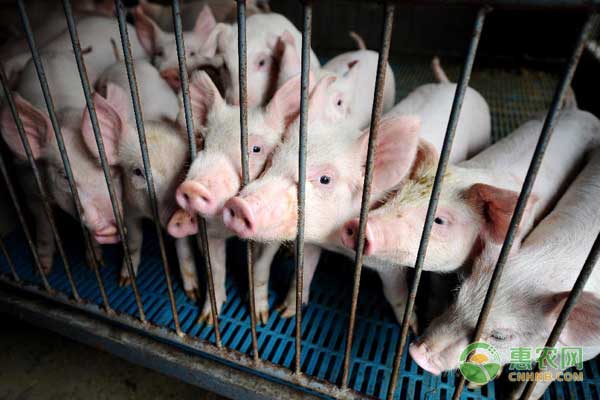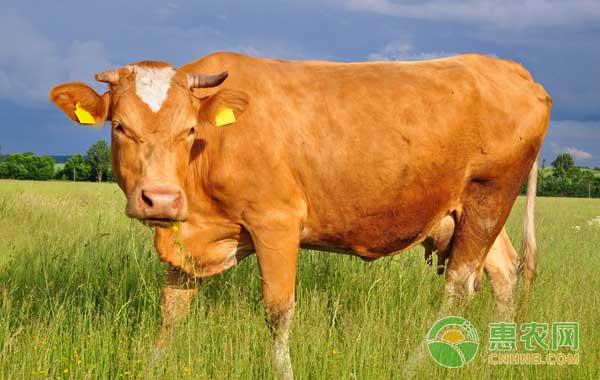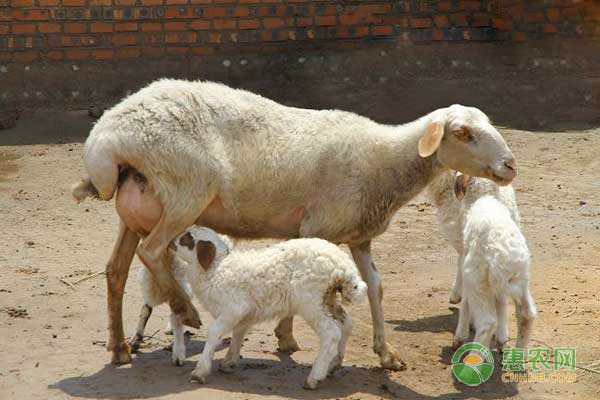In order to improve the breeding efficiency and reduce the chance of disease in livestock, the animals should be vaccinated in the spring and autumn every year. However, some animals have adverse reactions after immunization. If they are not rescued in time, they will die. The following is an analysis of the causes of adverse reactions after livestock immunization, and proposes practical rescue and prevention programs for the reference of farmers.

Adverse reactions after vaccination of livestock
1. Adverse reactions at the inoculation site
After the vaccination, the muscles at the injection site of the vaccine showed edema and congestion, and the skin of the hand palpated was obviously swollen and hot, and the compression had a painful reaction. Most can gradually absorb, individual can not absorb the formation of nodules, severe cases can be infected with rupture, so that the surrounding tissue material metabolism disorder, leading to tissue necrosis.
2. Other adverse reactions
General symptoms After immunization, the animals will have symptoms such as depression or restlessness, slow-moving slow food, elevated body temperature, and slow movement. Generally, the reaction gradually decreases with time until it returns to normal.
Acute symptoms After the immunization of animals, the clinical symptoms are very obvious, and soon there will be breathing difficulties, salivation and vomiting, systemic muscle tremors, conjunctival cyanosis, dilated pupils, incontinence, and unconscious symptoms. If not rescued, they will suffocate and die.

Causes of adverse reactions
Livestock stress response
During the vaccination of livestock, the pulling and Baoding will cause the body to be in a state of tension. In addition, a series of neuroendocrine reactions will occur after the vaccine is injected into the body, mainly due to increased dysfunction of the pituitary-adrenal cortex, increased secretion, and excessive sympathetic nerves. Excited. This causes various changes in the body's functions and metabolism, prompting the animals to have shortness of breath, rapid heartbeat, elevated blood pressure, diarrhea or constipation, decreased feed intake or abolition. Some animals also show excitement or Apathy.
2. Vaccine coupling reaction
When vaccinating large areas, you will encounter some cases involving other diseases. After some animals are infected with the disease, the clinical symptoms or symptoms of the disease are not obvious. Both the owner and the village animal epidemic prevention staff will consider the livestock to be healthy. In this case, if the same disease vaccine is vaccinated, the disease will be stimulated. Acute attacks, then the typical symptoms of the disease, can be severe.
3. Vaccine consolidation reaction
When the vaccine is injected, the animal is completely healthy without the disease, but the body's immune system will also be misjudged when it destroys the macromolecular substances entering itself. Due to certain factors (such as immune function defects), "the enemy and the enemy are not divided". Or there is no abnormality such as reaction (ie, immune paralysis). At this time, after the animal is vaccinated with a live attenuated vaccine, symptoms of infection of the disease may occur, and even acute morbidity or death of the animal may occur.
4. Allergic reactions
There is no essential difference between an allergic reaction and a normal immune response. It is due to the intense degree of reaction, which exceeds the tolerance of the animal's body, leading to dysfunction, tissue damage, and even shock death. In actual production, the occurrence of vaccination allergic reactions is closely related to the quality of the vaccine and to the number of livestock in the livestock population with atopic physique that is prone to allergic reactions.
5. Individual differential response
It is related to livestock breeds, health status, physical condition, weight, age and other factors. The breeds have good health, good health, good physical fitness, strong physical strength, and large-volume livestock have little or no stress response during immunization.
6. Vaccine and operational factors
When the vaccine is not warmed during immunization, the inoculum is greater than the dose specified in the vaccine manual, the use of metamorphic vaccine, incomplete disinfection, improper needle selection, etc., can cause an injection stress response.
treatment method
Livestock with mild adverse reactions or mild allergic reactions do not need to be treated, and should be strengthened. Generally, they will recover on their own within 1 to 3 days.
Animals with acute allergic reactions should be desensitized immediately with epinephrine hydrochloride or glucocorticoid drugs. Subcutaneous injection of 0.1% adrenaline hydrochloride 1 ~ 5 ml, depending on the degree of disease relief, 20 minutes after repeated injections of the same dose; intramuscular injection of dexamethasone sodium 5 ~ 30 mg (pregnant animals disabled). The dosage of the drug can be adjusted reasonably according to the species and weight.
When urticaria, edema, diarrhea, convulsions, etc. occur, diphenhydramine hydrochloride injection is administered to pigs at 40-160 mg/head, bovine 160-200 mg/head, intramuscularly, 3 times/d. For excitable, arrogant animals, promethazine hydrochloride can be administered intramuscularly at a dose of 250-500 mg/head of cattle and 50-100 mg/head of pig.
In addition, livestock can be injected with compound aminopyrine when the body temperature rises (40 ° C); heart failure animals can be injected with ammonia sodium coffee to be strong; animals with poor appetite or ruminant stop can give stomach to help digestion and promote Ruminant drugs; animals with bacterial infections can be treated with antibiotics; animals with vomiting can use antiemetics. At the same time, keep the animals quiet and give plenty of water.

Precaution
Strictly shut down livestock
First, in daily production, strengthen the management of livestock, provide feeds that meet their nutritional needs according to the growth stage, maintain proper temperature, humidity, and light, and ventilate well, strengthen daily disinfection work, improve livestock immunity, and reduce stress. The reaction takes place. The second is to strengthen the health check on livestock. Before injecting the vaccine, the animal owner is informed or observed the health status of the animal, and the animal is vaccinated under leisure and non-stress conditions. Third, do not inoculate the female animals within 1 month of mating or the dams that are about to be in the process of breeding. The animals will not be vaccinated during the period of reintegration, refueling and satiety. Fourth, livestock after long-distance transportation can only be immunized after 24 hours of rest. The animals cannot be vaccinated 20 days before slaughter. Fifth, 3 days before and after the large-scale breeding and farm vaccination, Astragalus polysaccharides and multivitamins should be added to the feed and drinking water to improve the antibody level of the vaccine.
2. Strict weather
Inoculation should be carried out at a time when the temperature is suitable, and the weather should be suspended, the wind is strong, the temperature difference is too large, and the weather should be suspended.
3. Strictly close the vaccine
Choose a high-quality vaccine to reduce the incidence of adverse reactions; carefully check the manufacturer, production date, expiration date, vaccine batch number and packaging integrity before using the vaccine; strictly control the inoculation dose, do not increase or decrease the inoculation dose.
4. Strict operation
When injecting the vaccine, the disinfection should be thorough, the part should be accurate, the method should be correct, the depth should be up to standard, the needle size should be appropriate, the vaccine should be shaken, and the temperature should be close to normal temperature before inoculation; when the immunization is concentrated, to ensure the safety of the vaccine and the animal Group health, a small-scale injection test on the same batch of vaccines to ensure safe and then large-scale immunization; strengthen the business training for livestock epidemic prevention staff, improve their business level and practical operation ability, try to avoid the occurrence of adverse reactions Ask the epidemic prevention staff to carry the first-aid drug adrenaline injection when vaccination to ensure timely and accurate treatment in the case of acute allergic reactions.
There is a risk of concentrated immunization of livestock, but farmers should also immunize livestock on time to prevent the occurrence of major infectious diseases.
Solid Drink,Organic Solid Drink,Organic Solid Grass Powder,Organic Solid Grass Juice Powder
Hengshui Shanzhi Health Drink Co., Ltd , https://www.grasspowder-sz.com